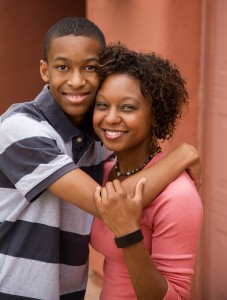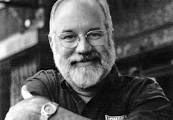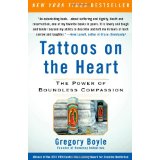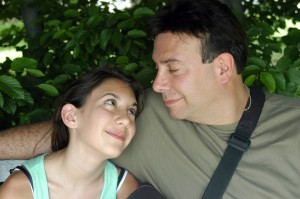Do you know this feeling?
“When (you, as a teenager) took a problem to (an adult) as we all remember, (the adult) was very likely to explain what you understood already, to add a great deal of information which you didn’t want, and say nothing at all about the thing that was puzzling you. I have watched this from both sides of the net; for when, as a teacher myself, I have tried to answer questions brought me by pupils, I have sometimes, after a minute seen that expression settle down on their faces which assured me that they were suffering exactly the same frustration which I had suffered from my own teachers.”
—C.S. Lewis, Reflections on the Psalms
 As a teenager, did you feel heard by adults when your heart was churning with questions? Did you only get a few words out before an adult springboarded off your simple wonderings to launch a monologue? Did you feel free to pose ideas contrary to church speak? Or would you face a diatribe of “correct theology”?
As a teenager, did you feel heard by adults when your heart was churning with questions? Did you only get a few words out before an adult springboarded off your simple wonderings to launch a monologue? Did you feel free to pose ideas contrary to church speak? Or would you face a diatribe of “correct theology”?
Albert Schweitzer wrote, “The teenage years are sometimes a process of unpleasant fermentation working itself off and leaving the wine clear. My religious instruction came through Pastor W. Although I respected him, I kept myself closed up. The good man never suspected what was stirring in my heart. His instruction was in itself excellent, but it gave no answer to a great deal of what my inner self was concerned with. How many questions I would have gladly asked him, but that was not allowed us. He believed that in submission to faith, all reasoning must be silenced.”
—Albert Schweitzer, Memoirs of Childhood and Youth
 Because of this experience, Schweitzer believed that much goes on in the heart of a youth that most adults don’t realize. The problem is—kids don’t have a safe place to sort it out.
Because of this experience, Schweitzer believed that much goes on in the heart of a youth that most adults don’t realize. The problem is—kids don’t have a safe place to sort it out.
As parents, teachers, or adult friends of teens we can offer that context—an open atmosphere where kids are free to air their questions, struggles, and doubts. Spiritual wrestling is a normal part of adolescence. After all, this process is precisely what leads us to a stronger faith.
Christianity can stand up to the test.
 When was the last time someone—anyone—sat down and pursued your heart, asked only a few questions to get things started, and then listened, really listened to you? Teens crave this but are scared of being tricked into a sermonette.
When was the last time someone—anyone—sat down and pursued your heart, asked only a few questions to get things started, and then listened, really listened to you? Teens crave this but are scared of being tricked into a sermonette.
We are such inveterate teachers. It’s easy to forget that growing and learning doesn’t necessarily come from more information. We must resist our impulse to use every opportunity to impart our “great wisdom.” Anyone feeling a little guilty here? My hand is raised.
In addition, teens and young adults are growing up in a postmodern world. It’s important to understand this shift. But what was the “modern” worldview to begin with?
 A few generations ago, people believed education, science, medicine, and technology could “fix” all the problems. They respected the voice of authority that assured them A+B=C. The “pill” would prevent unplanned pregnancies. Man would land on the moon, demonstrating technological superiority. And they hoped education would transform poverty cultures.
A few generations ago, people believed education, science, medicine, and technology could “fix” all the problems. They respected the voice of authority that assured them A+B=C. The “pill” would prevent unplanned pregnancies. Man would land on the moon, demonstrating technological superiority. And they hoped education would transform poverty cultures.
But recent generations have lost faith in those things alone. The pill facilitated a sexual revolution that undermined morality with far-reaching consequences. Landing on the moon didn’t stop a nuclear arms race. And education, while good and necessary, hasn’t change deep-seated practices of polygamy, tribal hatred, or witchcraft in say, Africa. Our youth are searching for spiritual answers because our best human efforts are not enough.
Not by a long shot.
 That should be good news, yet sadly, young people are looking in all the wrong places. Some have dabbled with New Age ideas, Wicca, healing arts, psychics, mind-expanding drugs, and supernatural experiences from occult sources. The culture has normalized these things. Think Buffy the Vampire Slayer, Twilight, and Harry Potter. Current movies like Lucy, portray god-like powers if we can just tap into our brains more. Really? Hollywood is obsessed with many dark themes.
That should be good news, yet sadly, young people are looking in all the wrong places. Some have dabbled with New Age ideas, Wicca, healing arts, psychics, mind-expanding drugs, and supernatural experiences from occult sources. The culture has normalized these things. Think Buffy the Vampire Slayer, Twilight, and Harry Potter. Current movies like Lucy, portray god-like powers if we can just tap into our brains more. Really? Hollywood is obsessed with many dark themes.
On top of being postmodern, vast numbers of teens are damaged to the core because traditional families are shipwrecked everywhere. An alarming number of kids are growing up fatherless. When a teen feels powerless, they seek ways to become powerful. When wounded, they want to anesthetize their pain.

 Can one caring, listening adult make a difference? YES! There are countless stories I could share to show you the power of listening. For example, read the moving accounts of Jesuit Priest Greg Boyle’s work with L.A. gangs in his book, Tattoos on the Heart: The Power of Boundless Compassion.
Can one caring, listening adult make a difference? YES! There are countless stories I could share to show you the power of listening. For example, read the moving accounts of Jesuit Priest Greg Boyle’s work with L.A. gangs in his book, Tattoos on the Heart: The Power of Boundless Compassion.
Also check out this heartrending YouTube video of the song “Listen,” sung by a 9 year-old boy named Malaki Paul. The words of Beyoncé’s song capture the cry in many young hearts. Malaki’s emotions show he is not just performing.
 I want to close by saying this: Take time to pursue the hearts of your children without any agenda, especially if they are teens. If you don’t have kids, pick out a few at church or young adults in your workplace.
I want to close by saying this: Take time to pursue the hearts of your children without any agenda, especially if they are teens. If you don’t have kids, pick out a few at church or young adults in your workplace.
It’s a spiritual gift to listen and let another feel heard.
Any thoughts? Please share your comments…








“LISTEN”
it’s all summed up in that one word.
that word covers a world of wrong agendas in dealing with children, teens and also adults.
it is challenging to pull off! just try it. for example, a great exercise to begin with, for me, is not finishing my husbands sentences! know what i mean??????
love
suzee B